From Indonesia, Vietnam to Japan: Taiwan Tech Engineers in Action promotes sustainable development across rural areas.
The USR Engineers in Action (EIA) team from Taiwan Tech went to Indonesia, Vietnam, and Japan during the summer vacations to actively participate in local sustainable construction projects. These include creating an information guide wall and an aquaponics system in an Indonesian village, installing sunshade structures and greenhouses in rural Vietnamese schools, and conducting water filtration and soap-making workshops for villagers in Japan. Through these international collaborations, students transform theoretical knowledge into real contributions, enhancing their professional skills while fostering a sense of social responsibility and global perspective.
In Indonesia, the EIA team partnered with Widya Mandala Catholic University to develop a unique information guide wall in Madiun, East Java, Indonesia that combines modern automation technology to help preserve local history and culture. Using plywood and recycled materials like old newspapers and plastic bottles, they presented the village's history and map in 3D, complemented by a trilingual audio guide in Mandarin, English, and Indonesian, to enhance visitor experience and promote local tourism.
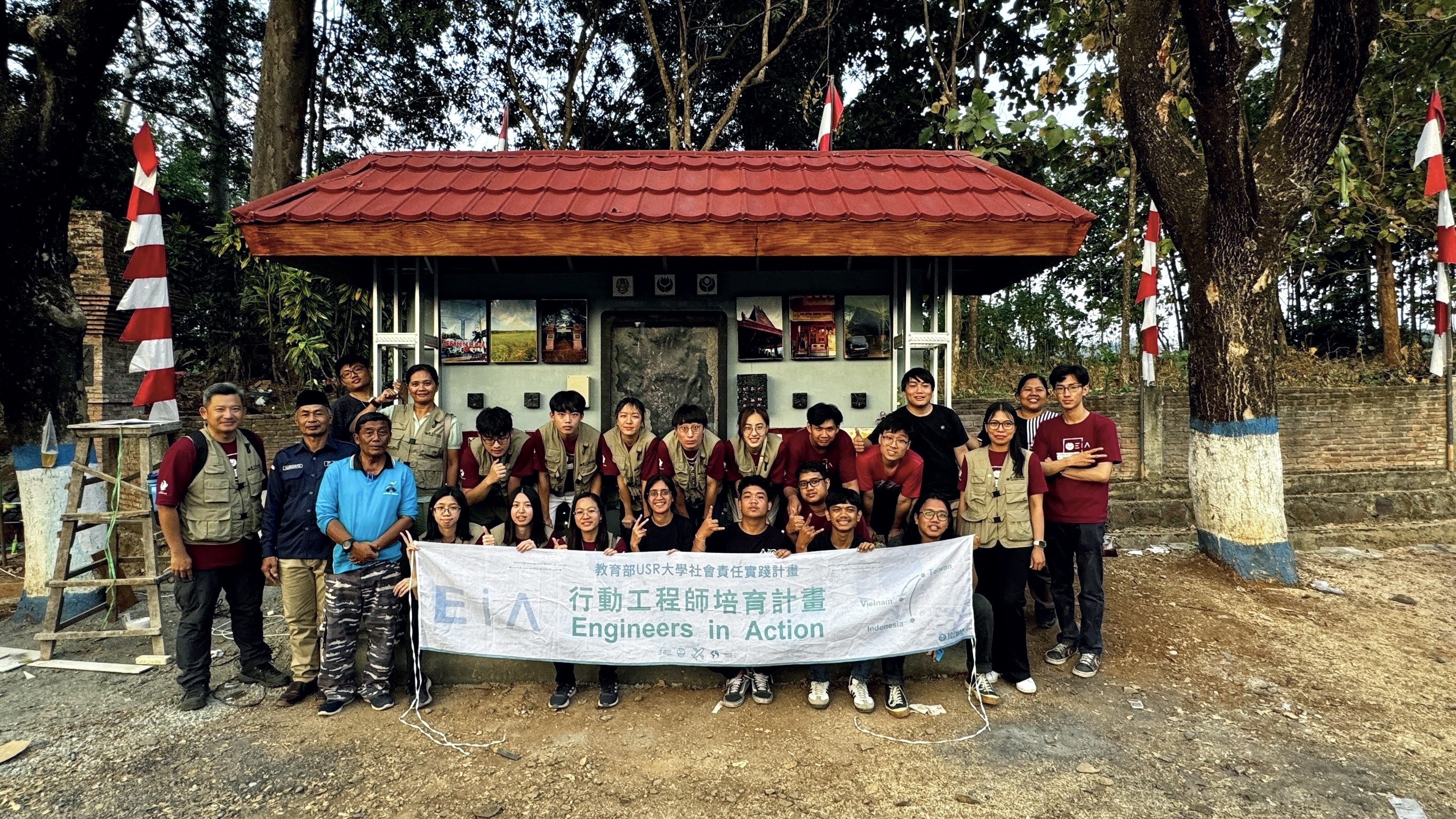
Taiwan Tech's Engineers in Action team built an information guide wall in Morang Village, Indonesia.
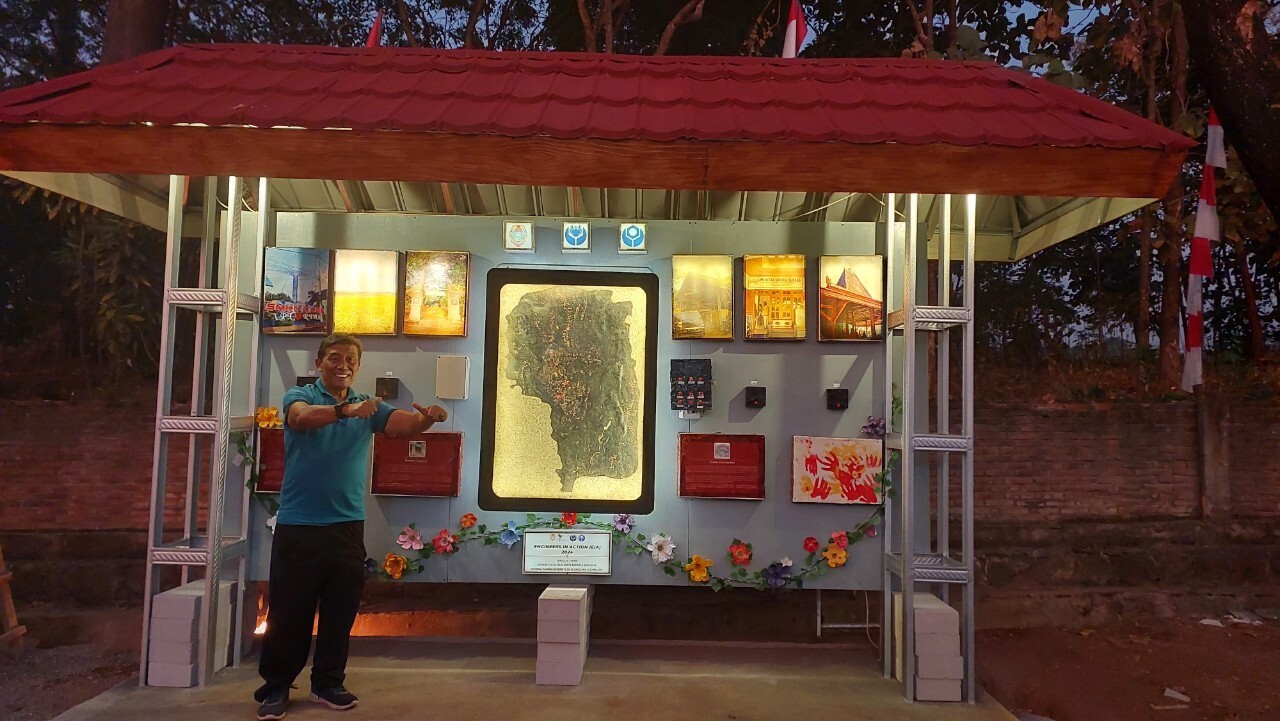
To enhance the visual effect at night, the 3D map and information panels are embedded with LED light strips and equipped with automated sensors for nighttime illumination.
In the nearby Magetan regency, the team assisted local residents in building greenhouses and installing solar aquaponics systems and bioconverters. The aquaponics system combines fish farming and growing vegetables while the bioconverters transform discarded vegetable scraps from local markets into organic fertilizer. The waste vegetable leaves recovered from the project are converted into organic fertilizers, reducing the environmental burden, providing local farmers with a more sustainable and diversified farming model, and contributing to the development of local agriculture.
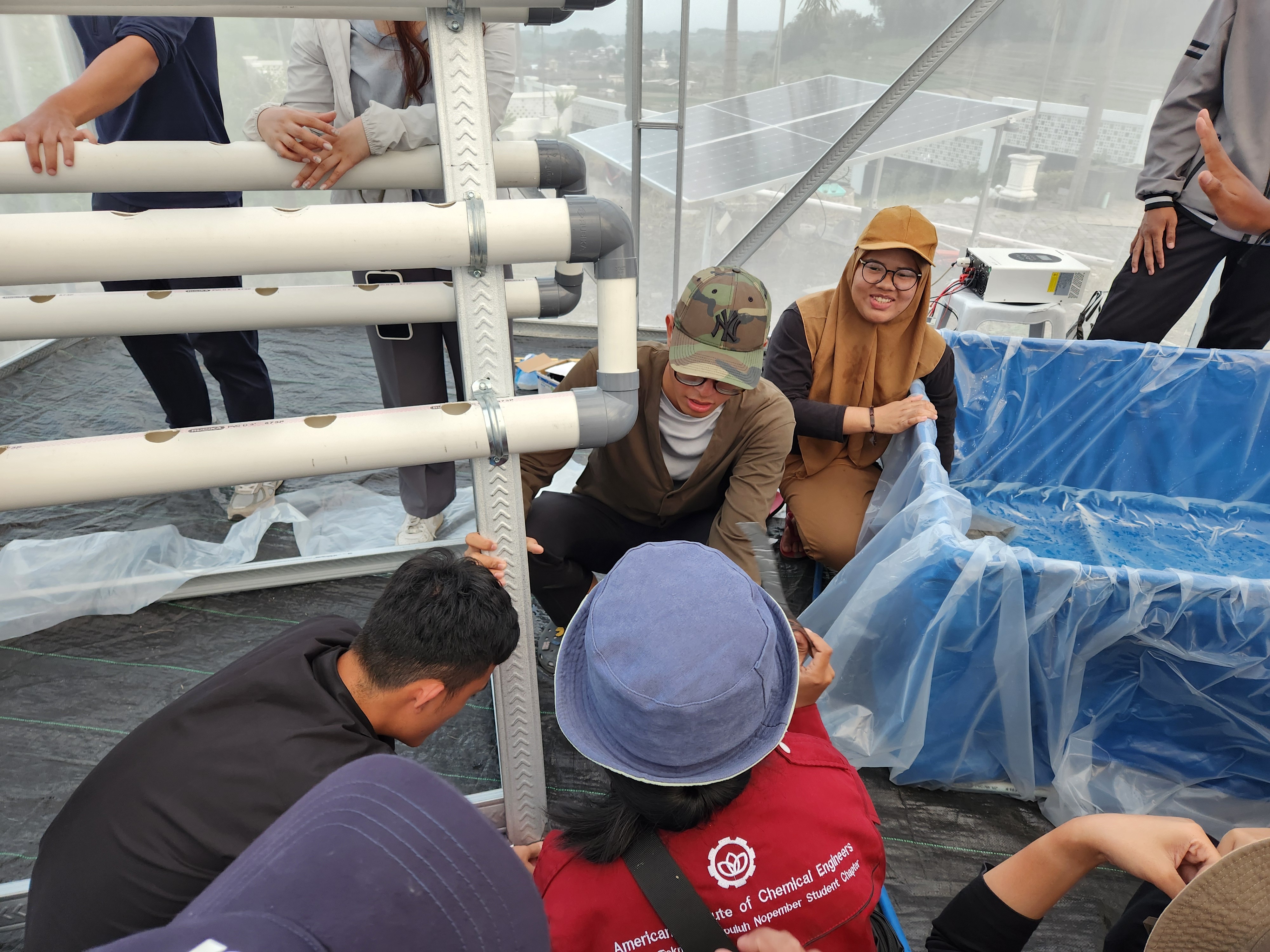
The Action Engineers team from Taiwan Tech collaborated with students from Sepuluh Nopember Institute of Technology and Osaka Institute of Technology to install a solar-powered aquaponics system, providing local farmers with a more sustainable and diverse farming model.
Additionally, the EIA team constructed sunshade roofs and simple greenhouses at a primary school near the Vietnam-Cambodia border and upgraded the restroom's electrical system. Located in a resource-poor area with many abandoned spaces and outdated facilities, the school faces significant challenges. The team aims to create an inclusive and safe environment for daily use and relaxation, while also developing planting and painting spaces for diverse learning opportunities, ultimately promoting sustainable land use.
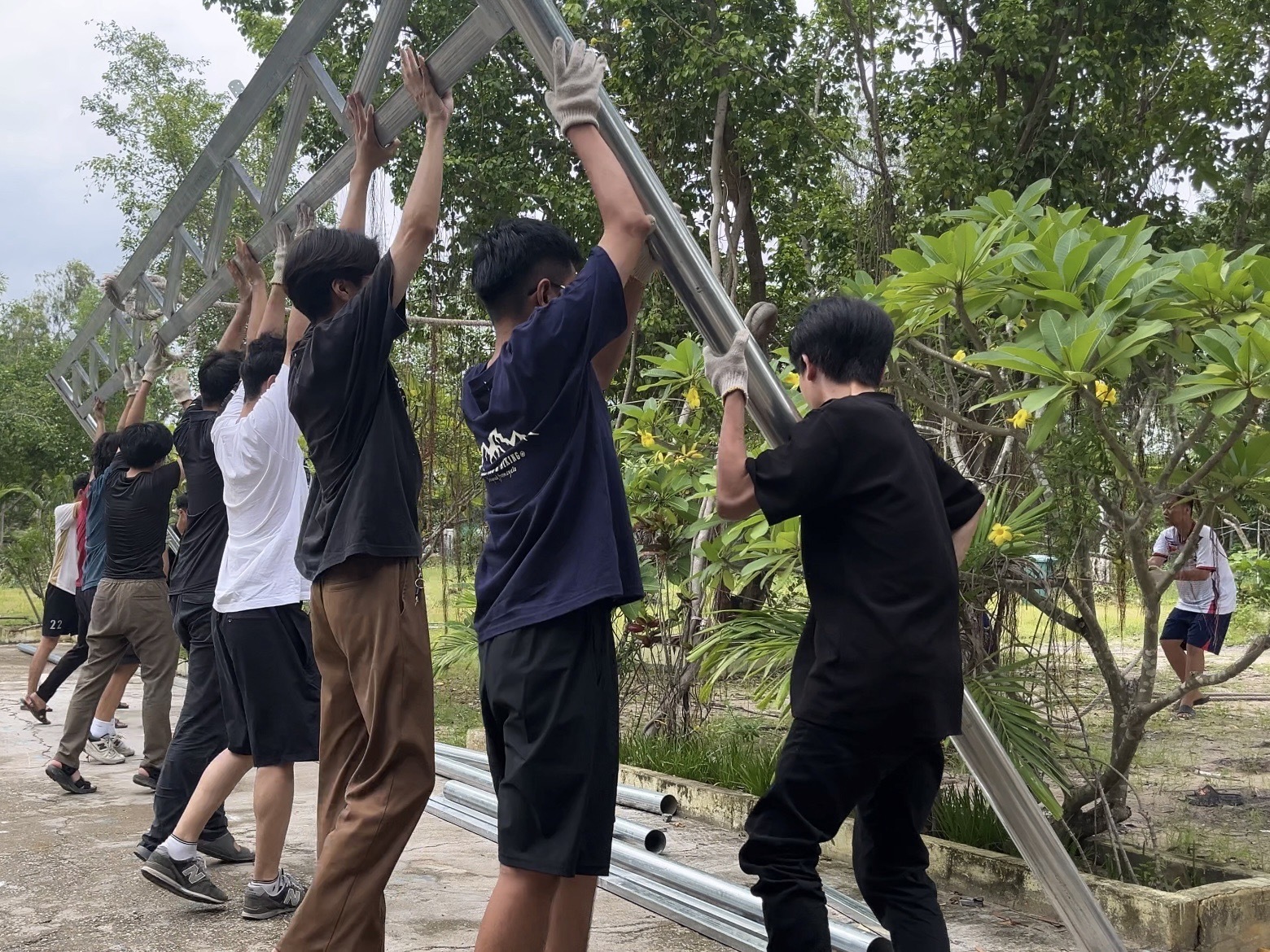
The EIA team collaborated with students from Vietnam and Japan to construct greenhouses and sunshade roofs at a primary school near the Vietnam border using lightweight steel materials.
Zhi-Ling Peng, a first-year student in the Department of Chemical Engineering, said, “I feel a sense of accomplishment when I can apply the knowledge I have learned and improve the environment of others by myself, and I deeply understand the original intention of the action engineer”. Professor Ting-Yu Hsu, the program director from the Department of Civil and Construction Engineering emphasized that cooperation with local residents can promote local sustainable development and train students to become engineers with action and empathy. Through cooperation with international partners, students can not only expand their international horizons but also establish deep cross-cultural friendships, enhancing Taiwan's international influence.

Taiwan Tech's Engineers in Action team planned and built a greenhouse garden space for a primary school near the Vietnam border.
This year, the EIA team partnered with students and faculty from the Osaka Institute of Technology for the first time to visit Kawakami Village in Nara Prefecture, Japan. Through workshops, they taught local elementary and middle school students how to create simple devices to filter spring water using PET bottles, activated carbon, quartz sand, and cotton. Inspired by the village’s local products, Japanese cypress, and Yoshino cherry blossoms, they also designed a handmade soap-making experience featuring these materials. The team hopes these activities will inject new tourism energy into Kawakami Village, which faces challenges due to population decline.
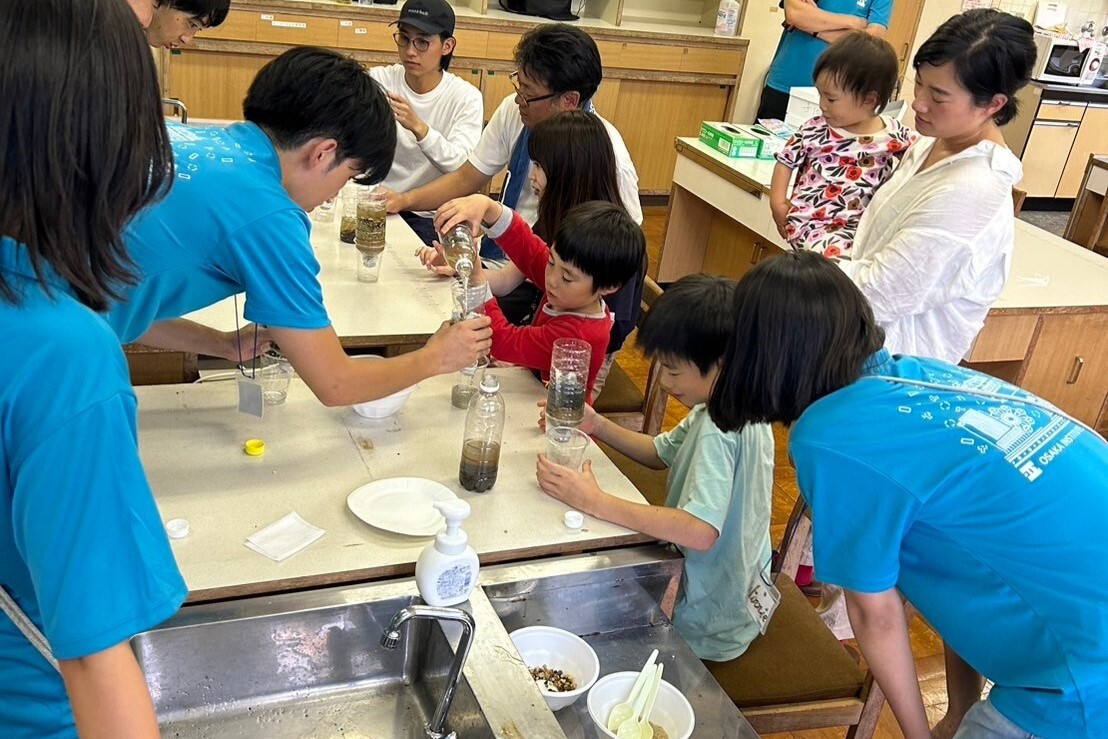
Engineers in Action team from Taiwan Tech conducted water filtration and handmade soap workshops in Kawakami Village, Japan, enabling local residents to filter spring water using simple devices.
During the implementation of these projects, the EIA team faced challenges brought about by multilingual communication and cultural differences. However, the students overcame language barriers through teamwork and successfully completed various tasks. The EIA project will hold an achievement exhibition in early October, inviting people from all walks of life to come and experience the wonderful stories of mobile engineers, learn how they use actions to change the world and demonstrate the persistence and contribution of Taiwan Tech in the field of international sustainable development.
